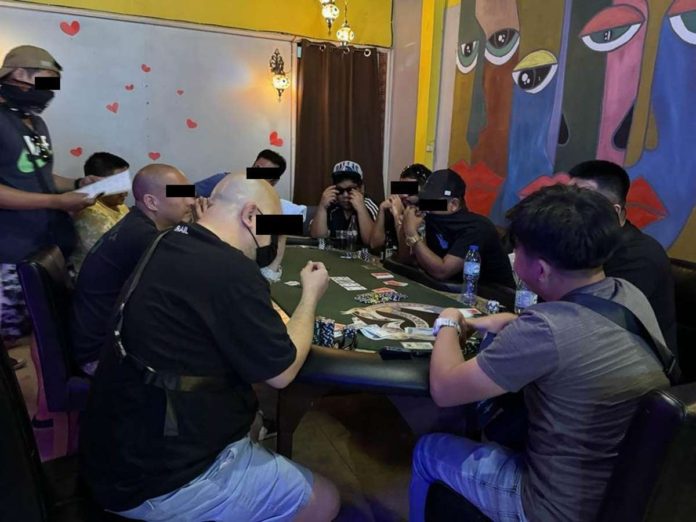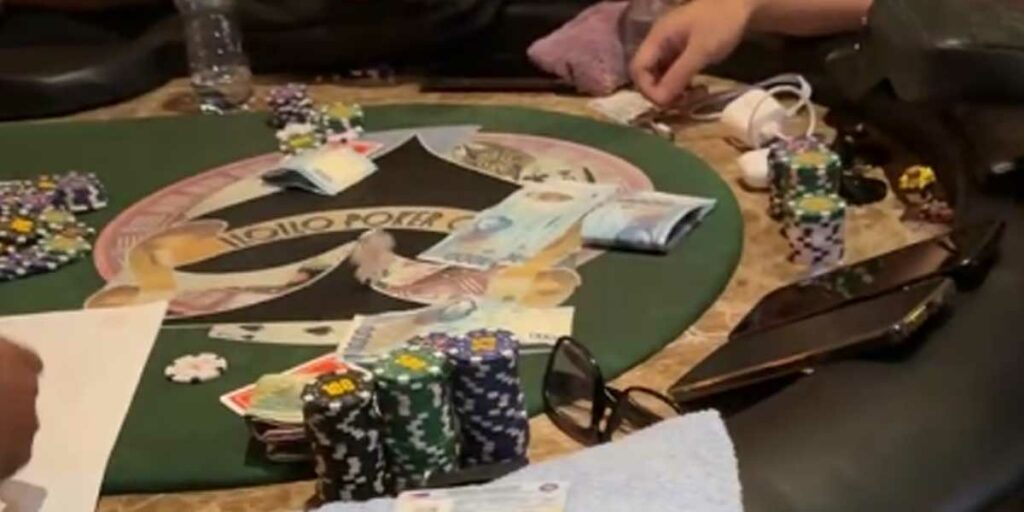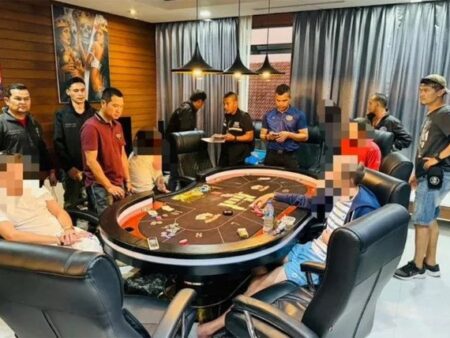
On April 20, around 3:30 p.m., in Iloilo City, Philippines, there was a police operation that ended in 29 arrests for an illegal poker game.
Some of the arrested players included a national police sergeant, a fire officer, and a Korean national. The organizer of the game and staff were also arrested.
The organizer claimed that they hosted a poker tournament and did not engage in gambling. Police dismissed this defense and pointed out that betting money is illegal.

Police confiscated P103,000 cash, three poker tables, poker chips, cards, and other gambling tools. Suspects are facing charges for violation of Presidential Decree 1602, which criminalizes gambling, including poker.
The whole operation was a tip-off from a relative of one of the poker players.
News Source: DailyGuardian
Penalties for Those Engaged in “Illegal Gambling”
Under current anti-illegal gaming laws, both individual gamblers/players and the persons or entities hosting illegal gaming within the Philippines could be held liable. Persons found guilty of violating anti-illegal gambling laws and regulations could be held liable for fines, suspension, or closure of the business, and even imprisonment when decreed by the court.
Under the Revised Penal Code, persons found guilty of violating anti-illegal gambling laws may be sentenced to serve a prison sentence ranging from four to eight years per count.
The executive department and law enforcement agencies, such as the National Bureau of Investigation and the PNP, are authorized to conduct raids, issue warrants of arrest, and file cases before criminal courts, and are responsible for enforcing anti-illegal gambling laws.








